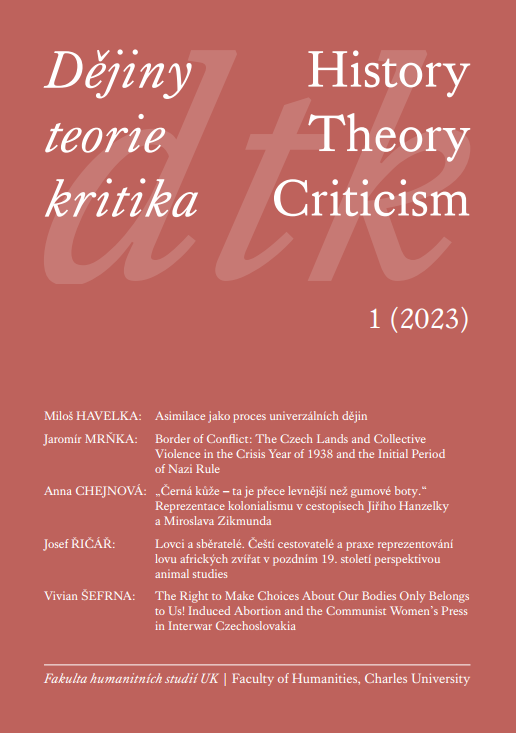Assimilation as a Process of Universal History
DOI:
https://doi.org/10.14712/24645370.3056Keywords:
Jindřich Kohn, T. G. Masaryk, G. W. F. Hegel, history of ideas, Czech thought, historical eschatology, assimilationAbstract
Jindřich Kohn’s essays, written in the first third of the last century, represent an interesting attempt to elaborate the project of assimilation as a historical and philosophical concept that went beyond the Czech-Jewish assimilationist ideas of the time: firstly, with its Hegelian phenomenological interpretation of assimilation as an (essentially) eschatological process of history, culminating in the assimilation of the whole of humanity, and secondly, as an original contribution to the Czech history of ideas and to the interpretation of its central figures. Kohn’s philosophy of history intrinsically linked the traditions of Jewish thinking with the mainstream of the Czech philosophy of history of the 19th century, especially with the ideas of T. G. Masaryk. In this context, we can consider J. Kohn as one of the important interpreters of Masaryk’s work. Using Masaryk’s ideas of humanity and democracy, and especially the idea of the religious meaning of (Czech) history, Kohn created an original philosophical-historical concept of universal assimilation of all human race based on respect and reciprocity, consciously opposed not only to the nationalism of the time, but also to the growing Zionist movement. Its important segments were an analysis of the spiritual situation of the present and the ethical nature of Jewish nationalism, which served as a starting point for understanding Czech-Jewish assimilation as a function of the pro-modernist transformation of Jewish identity.


